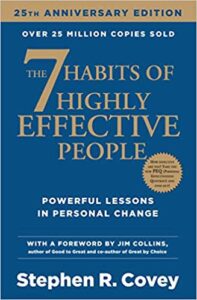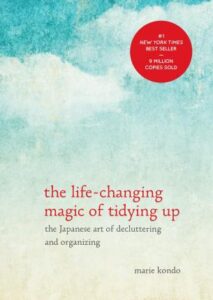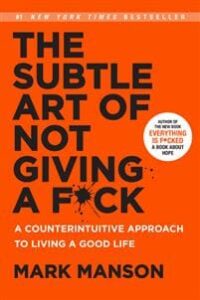Introduction
This book explain 12 rules that can be used to live a more fulfilled, successful and happier life. Each rule requires us to take responsibility for our own lives. These rules are explained though the authors own personal stories, history, religion and philosophy. The rules are great but the book contains too much unnecessary and complicated information.
What is Chaos and Order?
Chaos is our unexplored territory, it is the things we don’t know and the unexpected events that happen. This can be when we get fired from our job, we get a result we didn’t think we would get or we learn a new difficult skill. We don’t like Chaos because these are situations of uncertainty and its unpredictable.
Order is our explored territory, it is the things we are familiar with. Here everything is predictable and we know what and how things will happen. We like being in order because it’s safe and comfortable.
But living in Order all the time is not good enough because there are things we need to learn and do in order to live a fulfilled life. The ideal place is to be in the middle of Chaos and Order. Enough order so we are safe and don’t panic and enough Chaos so we are outside our comfort zone and leaning new things. In other worlds, we want to keep learning and challenging ourselves.
Rule 1: Stand Up Straight With Your Shoulders Back
Confidence is something good to have in almost every situation in life. By standing straight with your shoulders back and walking tall it shows that you are confident and have high self esteem. It also shows that you are open to the world and ready to take on the challenges it has to offer. People around you will also notice this and this can make you more attractive and respected. It will also improve well-being, happiness and health in the long run. If we are facing a big challenge, a good posture can trick us into getting the confidence we want to have.
The opposite to a person with a good posture is a person who slouches and is hunched over. A person with bad posture looks defeated and can sometimes be associated with low status. It also makes the person feel weak and less energetic.
Rule 2: Treat Yourself Like Someone You Are Responsible for Helping
If someone we care for gets sick we will get worried and take care of them as good as possible. However, if the same thing happened to us we would maybe ignore it or not take it too serious. Most people are better at treating others then themselves. Make it your responsibility to take care of yourself. This rule can be seen as a reminder to not forget to take care of ourselves and prioritize our own health in general.
Rule 3: Make Friends with People Who Want the Best For You
We become like the people we spend most time with. It is therefore important choose our friends carefully. If our friends have bad habits and toxic behaviors it is only a matter of time before we are influenced by them. A friend should be more then someone you have a fun with. They should challenge, encourage and support you and want the best for you. And when your do things that are harmful and not beneficial they will criticize you.
Rule 4: Compare Yourself to Who You Were Yesterday, Not Who Someone Else is Today
Comparing yourself to other people is normal and almost everyone does it. If you compare yourself to people more successful then you, than feel bad because you have achieved less. Or if you compare yourself to people worse then you than you maybe feel good because you have achieved more. Comparison in both cases are mostly useless since it does not move you anywhere and makes no progress.
If comparison with others gets you motivated to do better, then go ahead and do it. But most of the time it does not lead anywhere and all we do is feel about bad about ourselves. Most of the time you are also only seeing what’s on the outside and don’t know what they are dealing with on the inside. You are comparing yourself against their standards instead and not your own.
Our aim should instead be better than who we were yesterday. That way we know exactly what we are comparing with and nothing is hidden. Most of the time there is something about us that can be improved (for example: health, skills or relationships). Good behavior increases exponentially, so if you keep it up and improve yourself everyday, then in a couple of years you will be where you want to. Comparison with others damages you and comparison against who you were yesterday fulfills you. Ask yourself “am I better than i was yesterday?”. Having a well defined goal of what you want to achieve is also helpful.
Rule 5: Do Not Let Your Children Do Anything that Makes You Dislike Them
If you allow your child to do things you don’t like, then most likely other people will not like it either. The consequences of of this is that the child can to be left out and feel isolated in the future. They won’t be accepted into society because no one want to spend time around them. If children are allowed to do whatever they want without boundaries then they are being set up for failure when they grow up.
Children should instead be taught life lessons early on, how to behave properly and what responsibilities they have. They should be taught what things are ok to do and what things are not ok to do. By setting boundaries the child can interact with others, fit into society and not cause problems that will affect others negatively. It should be general rules that makes a good person such as show respect and be kind.
- There shouldn’t be too many rules either because that can make the child angry and frustrated.
- Use as little force as possible when teaching the rules.
- Two parents are better than one.
Rule 6: Set Your House in Perfect Order Before You Criticize the World
This rule is about looking at your life and focus on the things you can do and have control over. You should examine your own life, the results you have and the choices you have made in order to prevent mistakes in the future. Understand that the life you have now is the result of the choices you have made. Look for the bad things you are doing and bad habits you have and stop doing them. Look at the relationships you have and see if they are in a healthy state and look for what can be improved.
If you have a problem, the worst thing to do is to ignore it. A problem that is ignored will grow and not disappear.
Don’t blame others for the problems of the world. Instead focus on fixing your own issues and take responsibility for how your life is. It starts with you, not others.
Rule 7: Pursue What is Meaningful (Not What is Expedient)
What things are expedient? These are the things that are fun, convenient and easy in the moment but does not really result in anything. There is no progress being made. We will feel empty on the inside if we continue to do these activates all the time.
What things are meaningful? These are the things that move us toward our goals. These things are related to what we value and what we think are important. The time we spend doing these things often feel like it was worthwhile. These things makes us feel like we are moving forward in life and improving.
This rules is about sacrificing the now for the future. To do the difficult things that you know are important which will eventually reward you in the future. Don’t sacrifice who you could be for who you are now. You wanna grow and transform in a positive direction.
Rule 8: Tell the Truth, or at least Don’t Lie
Don’t lie to yourself or others. If you keep lying to yourself about why things have happened the way they have or why your life is the way it is, then eventually you wont be able to trust yourself or your own judgments. If you tell lies to others people will eventually find out and no on will trust you. Liars also need to remember each lie they tell in order to remain consistent which is very exhausting. Most people also don’t feel good when telling a lie, they often feel a sense of insecurity, shame, worry and weakness.
Most of the time, an honest person is preferred over a liar. Every time you lie you move away from being an honest person and more towards becoming a liar. So stop lying, keep your promises and start telling the truth. If there are things that need to be fixed then do it one step at a time.
Rule 9: Assume that the Person You Are Listening to Might Know Something You Don’t
A goal to have when entering a conversation could be to come out wiser then when you went in. We should look for something new to learn, be open minded and pay attention to what the other person is saying. Listening and thinking is just as important as talking in a good conversation. Most people will tell you a lot of things if you are willing to listen and allow them to talk. Don’t listen to reply, instead try to understand them.
A good way to let the other person know that you have heard them is to summarize what they said just said.
Don’t look at a conversation as competition. Don’t look at it as a way to prove that you are right and the other person is wrong.
Rule 10: Be Precise in Your Speech
This rule is about defining our goals and what we want as clearly and as specifically as possible. People, relationships, problems, our job or the world around us can all be confusing. Part of this confusion can however be reduced by being as precise and as clear in how we define things as possible. Simplifying can also be useful. By being as specific as possible in your goals and speech you reduce the risk of failure and misunderstanding.
A well defined goal or plan is easier to break down into smaller steps. More precision and details will give you more clarity on what needs to be done.
A lot of people don’t like to define what success means to them because if they do, they also define failure and most people are afraid of failure. Other people also don’t like to define their problems because that verifies that they exist. If there is something that needs to be said, it is often best to just say it, instead of being unclear and vague around it.
Rule 11: Do Not Bother Children when they are Skateboarding
People shouldn’t be too overprotective of others when they are learning new and challenging things. The example used here is skateboarding. People who skateboard take risk and puts themselves in physical danger in order to improve and learn something new. The result of this is that they will be more courageous and better at handling fear in the future.
People who are too protected will be worse at handling different social situations and challenges that require courage. They should therefore instead be encouraged to take calculated risk and be pushed outside of ones comfort zone. This way they will be better prepared for difficulties in life.
Rule 12: Pet a Cat When You Encounter One on the Street
Life can sometimes be terrible. Suffering is part of life and everyone goes through it. This rule is about balancing out the bad things happening to us with the good things around us. During the day we need to pause and be present in the moment and just appreciate the small positive moments and things around us. This can for example be to show gratitude to things such as clean water, fresh air, how beautiful the world can sometimes be or the things we still have.





